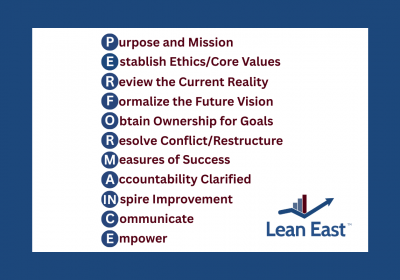We live in a world of instant gratification. An answer to every question is on the phone in your hand, and a future with artificial intelligence (AI) is only going to provide more information, faster. This pace reminds me of the need to slow down to ensure the little things in life and work are taken care of. We need to stop looking for the quick fix, the lucky break, or the secret investment and instead focus on small, regular habits done consistently that will compound over time. We must learn how to benefit from the compound effect in life and work.
How the Compound Effect Works

The compound effect, as popularized by Darren Hardy in his book The Compound Effect, is the principle of reaping huge rewards from a series of small, smart choices. Hardy emphasizes that consistent, seemingly insignificant actions, accumulated over time, lead to massive results that can be either positive or negative.
My first exposure to the compound effect was in math class when we studied how money in a bank account compounds over time. Each period, the money grows, and the interest on that larger amount grows as well. Over many periods, the interest amount will grow to be larger than the original money in the account!
Here is my favorite example of compounding. Guess the answer to this question:
“How thick would a piece of paper be if you folded it 42 times?”
First (and surprisingly), you can only fold a piece of paper about 7-10 times. Folding a piece 42 times is only theoretical, but since each fold doubles your thickness, it is easy to calculate that the thickness of your piece of paper would stretch to the moon!
Another example: “Would you rather have one million dollars this month or a penny today that doubles each day until the end of the month?”
If you choose the penny per day, after one week you will have just $1.27 in total! But on day 28 of the month alone, you would receive $1.34 Million, plus $2.68 Million on day 29, etc.
The key to the compound effect is small, minor steps repeated for a long period, eventually becoming very significant!
How to Benefit from the Compound Effect in Life
Here are some areas of your life where the compound effect can make an oversized difference. Tiny amounts of money, time, or effort become significant after many years!
1. Financial Savings and Investing: Regularly saving even a small amount, like $50 a week, and investing it consistently over decades will result in a substantial sum due to compound interest. The earnings from your initial savings start to earn their own interest, leading to exponential growth.
Can you guess what saving just $50 per week for 40 years would be worth if the investment earned 10% annually? Make a guess and then scroll to the bottom of this post for the answer.

2. Skill Development and Personal Growth: Dedicating just 15-30 minutes a day to learning a new skill (e.g., a foreign language, coding, playing an instrument) or reading non-fiction books will lead to a vast accumulation of knowledge and expertise over months and years, opening up new opportunities. My simple habit of using Duolingo on a daily basis (instead of wasting my time on TikTok) has improved my language skills immensely. Learn how to develop a new habit.
3. Health and Fitness: Making small, consistent healthy choices like walking 30 minutes a day or daily stretching and exercise will lead to significant improvements in overall health, energy levels, and disease prevention over time. We share many health tips in the Personal Kaizen blog.
4. Relationship Building: Consistently making small gestures of appreciation, engaging in meaningful conversations, and dedicating quality time (even just a few minutes daily) with loved ones will strengthen bonds, deepen trust, and create more fulfilling relationships over the long term. We can’t think of anything more important than relationships.
5. Productivity and Efficiency: Implementing small, consistent habits like planning your day the night before, tackling the most important task first, or tidying your workspace for 10 minutes daily, will lead to significantly increased productivity, reduced stress, and greater accomplishment over time. Check out our personal kaizen blog for more personal improvement tips and hacks.
How to Benefit from the Compound Effect at Work
Here are some ways business leaders can use the compound effect to their advantage.

1. Productivity and Process Improvement: A team that consistently dedicates a small amount of time each week to process improvement, refining workflows, or sharing best practices will see incremental gains in efficiency that compound into substantial operational improvements and cost savings.
2. Skill Development and Personal Growth: Investing in leadership training and employee development will compound into improvements in culture and results over time. And employees who consistently dedicate time to professional development, attending workshops, reading industry publications, or learning new software will collectively elevate the company’s talent pool, leading to increased innovation and efficiency. Your team is only as good as its people!
3. Relationship Building: Regularly engaging with clients through personalized follow-ups, providing excellent customer service, and building genuine connections will compound into strong customer loyalty, positive referrals, and sustained business growth. Seemingly small interactions matter over time.
The negative side of the Compound Effect
A series of small, hurtful choices will also compound into terrible results in life and work. These are areas where simple poor choices have an oversized negative effect. Avoid letting these bad habits compound!
1. Debt Accumulation: Making small, seemingly insignificant discretionary purchases on a credit card and only paying the minimum balance each month will lead to a mounting pile of high-interest debt that can become overwhelming over time.
2. Poor spending habits: Do you barely get by every week, with nothing left over for investing? Many people have some simple spending habits that can compound into the money you could be investing. Do you pack a lunch or eat out at a restaurant every day? Do you waste money on smoking or expensive drinks?
The graph below shows the real costs of a $4 per day coffee habit after 20 years.

Note that I still drink coffee, I just brew it at home for a fraction of the cost.
The spending above adds up, but what if we instead invested that same $4 every day and earned a 10% annual return on our investment? Our final investment value after 20 years gets to compound and is worth $87,750! That is a large down payment on a new home!
3. Unhealthy Lifestyle Choices: Consuming sugary drinks daily, smoking “just a few” cigarettes a day, or consistently getting inadequate sleep, will all compound into significant health problems such as obesity, chronic diseases, and cancer, and reduced quality of life.
What minor changes do you need to make today?
4. Neglecting Relationships: Consistently neglecting communication, failing to show appreciation, or taking loved ones for granted through small, repeated oversights will gradually erode trust and connection, leading to strained or broken relationships.
Summary
Every “overnight success” we see in business and life is the result of many years of the compound effect at work.
What good habits are you compounding now? Imagine what the benefits will be as you continue these for the next 10-20 years. What additional habits will benefit you?
What bad habits are you repeating every day that are compounding into real issues in your life?
Please leave your comments and additional tips below.
Here is the answer to our earlier question. $50 per week invested for 40 years with a 10% annual return will be worth approximately $1,150,740!





Absolutely fantastic article! The points discussed here are life changing and inattention or lack of care can be hugely damaging so I’m really pleased to see both the positive and negative potential highlighted so succinctly. I’m sharing this article wherever I can.